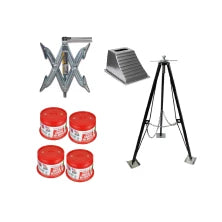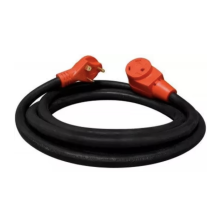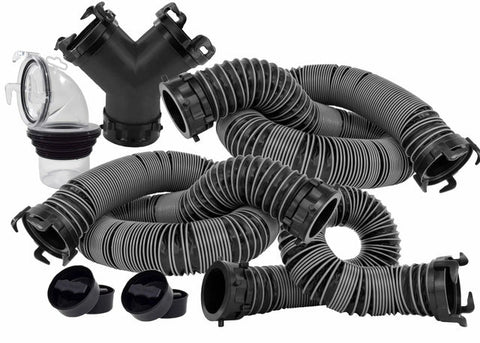Retirement marks the beginning of a new chapter—an era of freedom, exploration, and embracing the adventures that life has to offer. For many retirees, the allure of hitting the open road in an RV is a dream worth pursuing. However, making this dream a reality while staying within a retiree's budget requires careful planning and savvy decision-making.
In this guide, we'll explore actionable tips and strategies that empower retirees to embrace the RV lifestyle without breaking the bank.
1. Budget Planning
Begin your journey by establishing a realistic budget tailored to your retirement income. Consider all expenses associated with RV living, including purchasing or renting an RV, maintenance, campground fees, fuel, insurance, and miscellaneous costs.
2. Choose the Right RV
Opt for an RV that suits your lifestyle and budget constraints. While larger, more luxurious models might be appealing, they often come with higher upfront costs and increased maintenance expenses. Consider smaller, more economical options such as camper vans or smaller travel trailers that are more budget-friendly.
3. Purchase Used or Consider Rentals
Buying a pre-owned RV or exploring rental options can significantly reduce initial costs. Used RVs, when inspected thoroughly, can offer excellent value for money, while rentals allow you to experience the RV lifestyle without committing to ownership.
4. Campground Memberships and Discounts
Explore campground memberships or discount programs tailored for seniors or retirees. These memberships often offer reduced rates or additional amenities, allowing you to save substantially on accommodation costs.
5. Boondocking and Free Camping
Embrace the boondocking lifestyle—camping off-grid on public lands or in designated areas without amenities. Free camping options such as Walmart parking lots or certain public lands offer cost-effective alternatives for overnight stays.
6. Slow and Seasonal Travel
Avoid high fuel costs and overcrowded campgrounds by adopting a slower travel pace. Plan your trips during off-peak seasons to take advantage of lower campground fees and fewer crowds.
7. Minimalist Living
Embrace minimalism and downsize your belongings to optimize space in your RV. Reduce unnecessary items and focus on essentials to minimize weight and enhance fuel efficiency, ultimately saving on costs.
8. DIY Maintenance and Repairs
Learn basic RV maintenance and undertake minor repairs yourself to save on service costs. Numerous online resources and communities offer guidance on DIY repairs, helping you become more self-sufficient on the road.
9. Workamping or Volunteering
Consider workamping opportunities where you exchange labor for a place to park your RV. Volunteering at national parks, campgrounds, or events not only provides accommodation but also enriches your travel experience.
Conclusion
The RV lifestyle offers retirees the freedom to explore new horizons, connect with nature, and create lasting memories—all within a manageable budget. By carefully planning, making informed decisions, and embracing cost-effective strategies, retirees can embark on fulfilling adventures without compromising their financial stability.
Do you have additional tips or experiences to share about RVing on a retiree's budget? Share your insights in the comments below and inspire others to pursue their RV dreams within their means.
















Comments (0)
There are no comments for this article. Be the first one to leave a message!